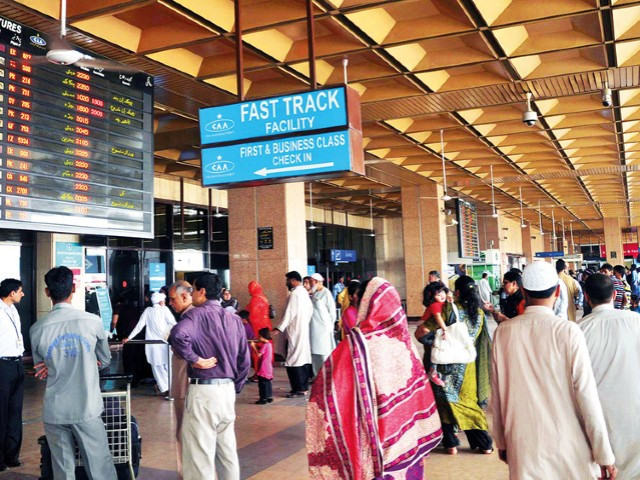
The United Arab Emirates (UAE) has put a complete ban on passengers from Pakistan who had only conducted rapid antigen testing and entry into the country would only be allowed to passengers who had gone through rapid polymerase chain reaction (PCR) test for Covid-19 at the airport, it emerged on Sunday.
Earlier, Pakistani passengers could enter Sharjah and Al Ain with only rapid antigen tests via Air Arabia flight. However, now the passengers from the countries in the high-risk category including Pakistan would not be able to enter the Gulf state without a negative rapid PCR test report.
Also, the rapid PCR test should be done at the airport of the origin country.
Hundreds of passengers have been barred by Emirates and other UAE airlines from travelling for not having rapid PCR test, which is required to be conducted within four hours before the departure of the flight.
Read more: CAA urges govt to take up issue of rapid PCR tests with UAE
The passengers from the countries in the non-high-risk category can enter the UAE by taking PCR test and rapid PCR test 48 hours prior to their flight. However, even they cannot stay in the country for more than 14 days.
The UAE officials have made it mandatory for all airlines to follow the instructions.
On Friday, Pakistan's Civil Aviation Authority (CAA) had said that the country did not have the resources to conduct PCR tests and only rapid antigen testing was currently being used as a method of testing passengers for Covid-19 at the airports.
In a letter written to the Ministry of Foreign Affairs (MoFA), the authority stated that the rapid PCR testing facility cannot be provided to departing passengers for Dubai as it was currently unavailable in Pakistan.
Also read: UAE lifts ban on transit flights from Pakistan
It urged the MoFA officials to take up the matter with relevant authorities in the UAE on a priority basis so that they can reconsider their policy.
On Saturday, CAA announced that it will provide space to UAE-approved laboratories to establish their counters at all major airports of the country to conduct PCR tests.
In a statement, CAA DG Khaqan Murtaza said all Pakistani labs accredited by the UAE authorities and its airlines will establish their counters at all international airports of the country to facilitate the travellers.
He added that the decision has been taken in view of difficulties being faced by UAE-bound passengers.
Even as the UAE has lifted suspensions on return of Pakistan expats, thousands of Pakistanis still remain stranded due to the non-availability of rapid antigen test facilities at the local airports.
“There is no Rapid Antigen Test facility at the Pakistani airports. Therefore, passengers are not able to board the flights. The UAE has emphasised to strictly follow SOPs (standard operating procedures), and bring passengers that meet all the guidelines and conditions,” UAE country manager of a private airline Sohail Nazar told Khaleej Times.
“All the airlines are facing this challenge because none of the airports in Pakistan has this facility. Importantly, the condition is that this rapid antigen test has to be conducted within the premises of the airport and not outside the premises of the airport. This means the rapid test has to be done four hours before departure of the flight,” Sohail said.
He said that some laboratories in Pakistan offer the facility, but it is useless because the rapid test is not conducted within the premises of the airport.
COMMENTS (43)
Comments are moderated and generally will be posted if they are on-topic and not abusive.
For more information, please see our Comments FAQ
-(14)1720679028-0/(image-blakelively-on-Instagram)-(14)1720679028-0-405x300.webp)

1731028448-0/Untitled-design-(37)1731028448-0-165x106.webp)



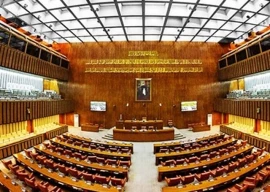



1730379446-0/WhatsApp-Image-2024-10-31-at-17-56-13-(1)1730379446-0-270x192.webp)
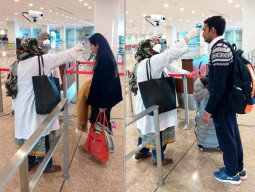
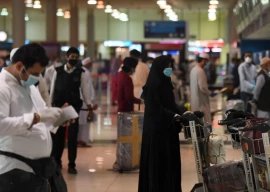
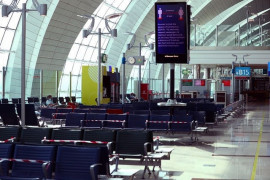






The govt is more concerned abt Uk red list than the expats stuck in Pakistan for UAE due to the incompetence of the govt The remittance of uae is far more than Uk
Pakistan govt must solve this problem and take serious action and must arrange rapid test facilities at all pakistani airports so that passengers travel to uae
What are the priorities of this government blaming the political opponents and trying for political gains. See the ministers advisers are busy day and night in front of cameras and projecting only Imran Khan but doing nothing. Small countries are able to install Rapid PCR Tesing facilities at their airports bu we proudly claiming ourselves a nuclear armed country is unable to install this gacility at all. Where are ministers and advisers no one takes up this important issue at all. For small issues of political opponents there are quick statements but here every one is sleeping on this issue very bad.
Such hurdles will be created by most countries govt should liaise with UAE authorities to resolve this issue quickly so people can return to join their families and to their jobs shouldn t be difficult to set up at various Pakistani airports.